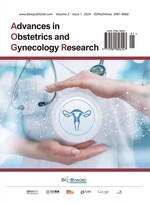Abstract
Objective: To explore the impact of active implementation of prenatal screening on preventing congenital disabilities. Methods: A total of 10,695 pregnant women at Chenyang District Maternal and Child Health and Family Planning Service Center underwent prenatal screening between January 2021 to December 2023. These women were divided into two groups: 18 to 30 years old and 31 to 45 years old. High-risk rates of Down syndrome (DS), Edwards syndrome (ES), and neural tube defects (NTD) were compared between the two groups of pregnant women. Results: Among the 10,695 pregnant women who received prenatal screening, 1,588 were identified as high-risk. Pregnant women aged 31 to 45 years old showed higher high-risk rates of DS, ES, and NTD compared to those aged 18 to 30 years old (P < 0.05). The high-risk group demonstrated elevated rates of DS, ES, and NTD diagnoses (P < 0.05). Additionally, the high-risk group’s evaluation of spontaneous abortion rates exhibited higher levels, although not significantly different from the low-risk group (P > 0.05). Moreover, the high-risk group’s evaluation of congenital disabilities in pregnant women showed a significantly higher rate (P < 0.05). Conclusion: Prenatal screening enables the early detection of potential fetal problems, facilitating the implementation of corresponding measures to reduce the incidence of congenital disabilities.
References
Hua X, 2022, Research on the Clinical Value of Prenatal Screening to Prevent Congenital Disabilities. Chinese Practical Medicine, 17(2): 80–82.
Zhang L, Liu X, Song G, et al., 2020, Prevention of Congenital Disabilities and Eugenics is an Important Cornerstone of National Health. Chinese Medicine, 15(9): 1329–1333.
Ma H, Li C, Song J, et al., 2022, Comparative Study on Optimized Integration of Prenatal Screening and Diagnostic Multi-Technologies in Fetal Congenital Disabilities. Laboratory Medicine and Clinic, 19(15): 2042–2045.
Yao K, Zhang H, Li J, et al., 2018, Research on Maternal Serum Prenatal Screening in the Second Trimester to Prevent Congenital Disabilities. Chinese Journal of Eugenics and Genetics, 26(9): 91–93.
Yang M, 2020, The Value of Prenatal Screening and Prenatal Diagnosis in Preventing Congenital Disabilities in Newborns. Journal of Clinical Rational Drug Use, 13(2): 165–167.
Yang F, 2023, Analysis of the Preventive Effect of Prenatal Screening Intervention on Neonatal Congenital Disabilities. Chinese and Foreign Women’s Health Research, 2023(5): 79–80 + 100.
Li C, 2020, Discussion on the Role of Prenatal Screening in the Second Trimester and Prenatal Diagnosis in Reducing Congenital Disabilities. Chinese Medical Guidelines, 18(4): 149–150.
Li Y, Yang D, Zhang D, et al., 2020, The Significance of Prenatal Screening and Diagnosis in Preventing Congenital Disabilities and Promoting a Comprehensive, Well-Off Society. Chinese Medicine, 15(9): 1334–1337.
Zhang L, 2018, Prenatal Screening and Diagnosis in the Tertiary Prevention of Congenital Disabilities. Chinese Journal of Practical Rural Doctors, 25(3): 6–8.
Lai C, Zhang L, 2022, Analysis of the Value and Significance of Combined Early and Second-Trimester Screening in Reducing Congenital Disabilities. Chinese Medical Innovation, 19(30): 57–61.
